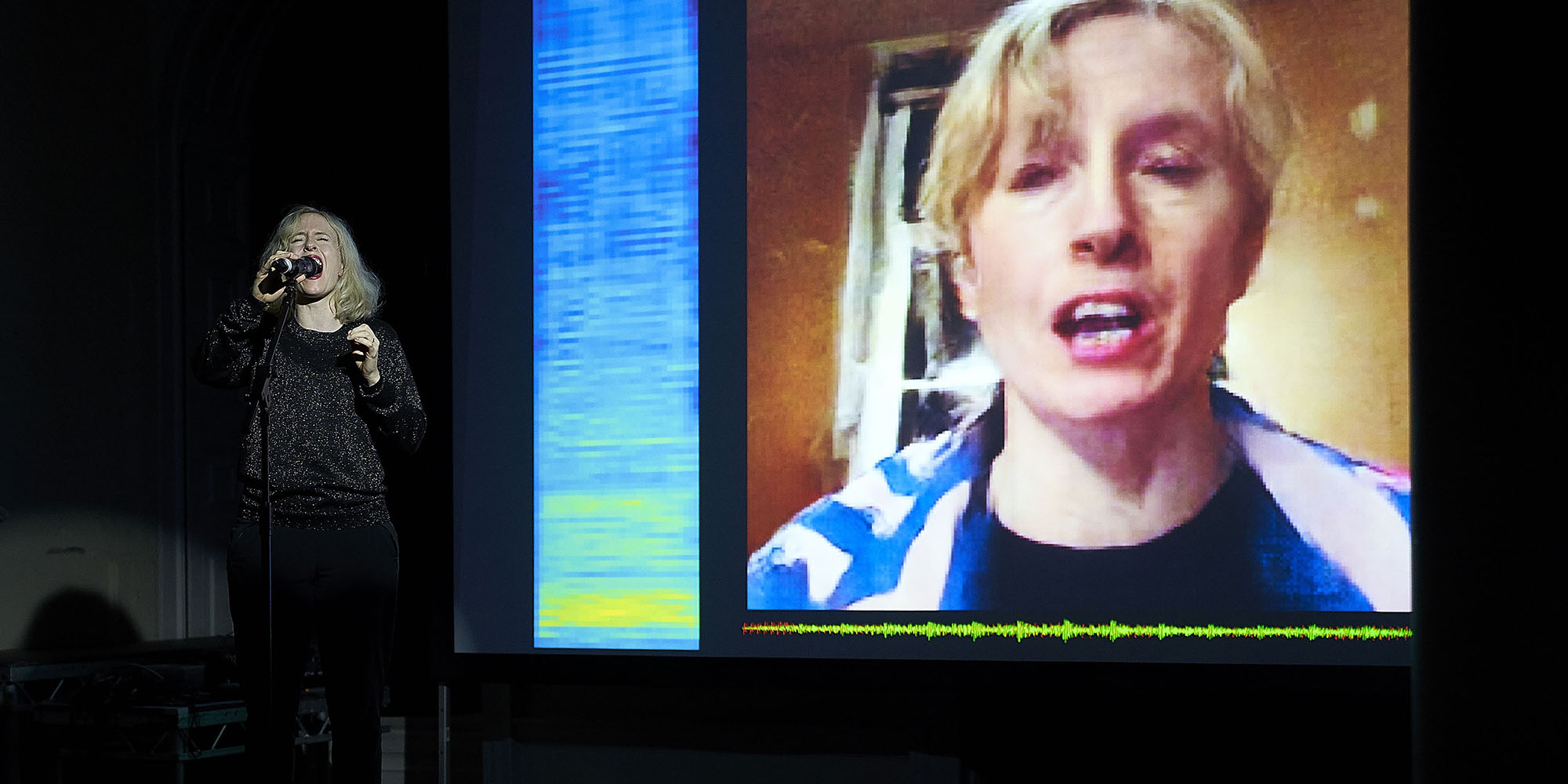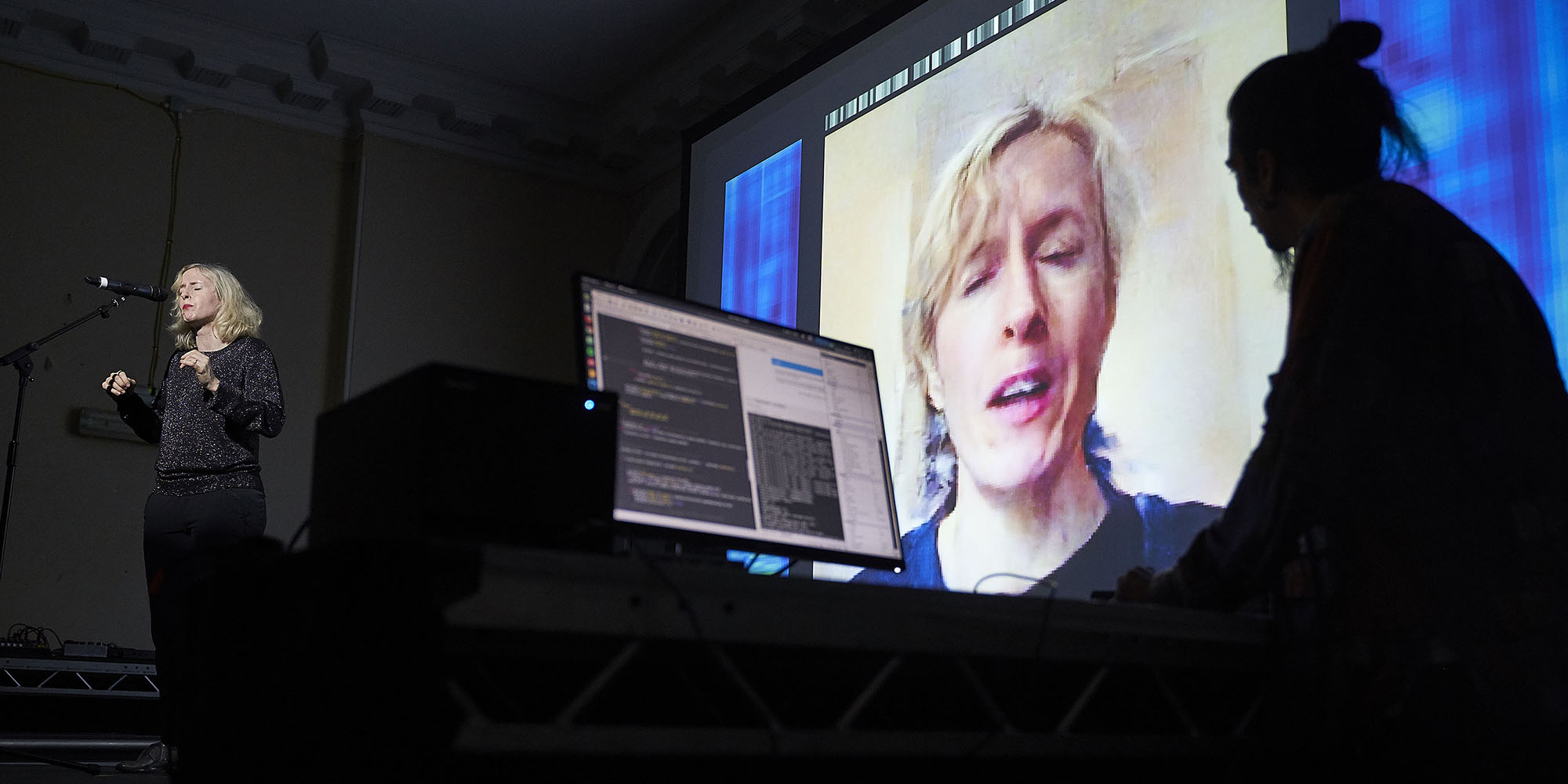What are the implications of using your voice to improvise with a neural network? Composer Jennifer Walshe and artist Memo Akten present ULTRACHUNK (2018), a neural network trained on a corpus of Walshe’s solo vocal improvisations. Here, Walshe wrangles with an artificially intelligent duet partner – one that reflects a distorted version of her own improvisatory language and individual voice.
For one year, Walshe engaged in a daily ritual of performing solo improvisations in front of her webcam, collecting hours and hours of both video and audio material. Akten created a number of neural networks – including GRANNMA (Granular Neural Music and Audio) – which was trained on Walshe’s improvisations. In the performance, GRANNMA navigates the hypersphere, generating ca. 20 frames of video and 44,100 16-bitsamples of audio per second in real time. The video and audio are neither sampled nor processed – every single frame and sound is generated live, constructed from the fragments of memories in the depths of the neural networks. The original and virtual Walshe inhabit the Uncanny Valley together, singing in duet, improvising, listening and responding to each other.

Project Credits:
- ULTRACHUNK was commissioned by Somerset House Studios with the generous support of the Case Foundation.
Biographies:
“The most original compositional voice to emerge from Ireland in the past 20 years” (The Irish Times) and “Wild girl of Darmstadt” (Frankfurter Rundschau), composer and performer Jennifer Walshe was born in Dublin. Her music has been commissioned, broadcast and performed all over the world. She has been the recipient of fellowships and prizes from the Foundation for Contemporary Arts, New York; the DAAD Berliner Künstlerprogramm, the Internationales Musikinstitut, Darmstadt and Akademie Schloss Solitude among others. Recent projects include Aisteach, a fictional history of avant-garde music in Ireland, and EVERYTHING IS IMPORTANT, a work for voice, string quartet and film commissioned by the Arditti Quartet.
http://milker.org
Memo Akten is an artist, researcher and philomath from Istanbul, working with computation as a medium to explore the intersections of science and spirituality. Working with algorithms and custom software, he combines critical and conceptual approaches with investigations into form, movement and sound, designing behavioral abstractions and data dramatisations of natural and anthropogenic processes. He received the Prix Ars Electronica Golden Nica in 2013 for his collaboration with Quayola, Forms. His 2009 works Body Paint and Gold have toured with the Victoria & Albert Museum’s Decode exhibition, and his 2017 work Learning to see is currently part of the Barbican’s More than Human exhibition.
http://www.memo.tv


